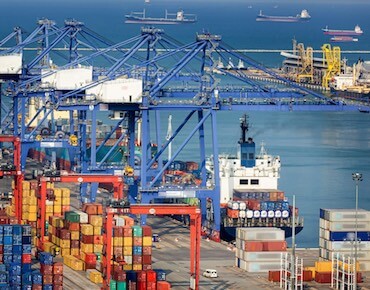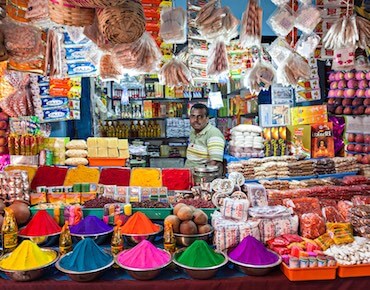Recognized as an effective collaboration for pursuing trade policy research, advocacy and capacity building
ARTNeT is an open regional network of research and academic institutions and think-tanks with a keen interest in addressing international trade and investment policy and facilitation issues in the context of sustainable development. Since 2005, the ARTNeT community has been conducting demand-driven research and analysis on relevant trade and investment issues, resulting in a spectrum of available publications. Simultaneously, as many of the countries in the Asia-Pacific region have yet to evolve trade-related research programmes, ARTNeT strives to build research capacity in the region, particularly in least developed countries. Moreover, ARTNeT acts as a research dissemination platform and organizes meetings that enable research institutions and policy makers to exchange information and collaborate, with the ultimate achievement to leverage trade and investment as engines for sustainable development in Asia and the Pacific.
Research
Conducting demand-driven research and analysis on relevant trade and investment issues, resulting in a wide spectrum of available publications.
Capacity Building
Striving to build research capacity in the region, particularly in least developed countries, in order to evolve trade-related research programmes.
Advocacy
Offering a research dissemination platform and organizing thematic consultative meetings to enable research institutions and policy makers to exchange information.

Trade & the Sustainable Development Goals
The 2030 Agenda for Sustainable Development and the associated Sustainable Development Goals (SDGs) form the new global development framework. The 2030 Agenda recognizes international trade as an important means of implementation and as an engine for promoting inclusive growth. The ARTNeT Expert Group on Trade and SDGs is expected to play a bridging role between research communities that are currently operating (often) separately on themes of international trade and SDGs. The expert group will use the established channels of work of ARTNeT, including the establishment of an advisory board, organization of research capacity building workshops and regular knowledge dissemination and multi-stakeholder consultation.

Enhancing the Contribution of Preferential Trade Agreements to Inclusive and Equitable Trade
Expanding trade and investment has driven growth in many developing countries, contributing to major reductions in poverty and leading to improvements in overall welfare in the Asia-Pacific as in other regions. However, substantial variations in performance means that many countries, as well as many groups within countries, have not seen similar benefits from trade. Preferential trade agreements have the potential to promote growth, employment and social welfare, and developing countries need assistance in understanding and evaluating the real and potential impacts from preferential trade agreements in order to design and implement policies to deliver more inclusive outcomes. Together with ARTNeT, this Development Account project has developed knowledge products to help developing countries in pursuing more inclusive trade, as well as developed the Asia-Pacific Trade Indicators Portal to support research and policymaking.
Learn more about PTAs and Inclusive TradeVisit the Asia-Pacific Trade Indicators Portal

Non-Tariff Measures
The 2030 Agenda for Sustainable Development recognizes international trade as an engine for inclusive economic growth and poverty reduction, and an important enabler to achieve the Sustainable Development Goals (SDGs). The SDG framework explicitly recognizes different trade policy measures. Trade and trade related policies have a multifaceted link to the SDGs. In addition to the trade-growth economic development nexus, trade is strongly linked to sustainable development goals such as food safety, health, climate, labour conditions, etc. Non-tariff measures (NTMs) cover measures such as sanitary and phytosanitary standards and technical barriers to trade that aim to protect human, animal and plant life as well as the environment. They are necessary instruments to achieve social and environmental objectives. However, such measures can become barriers to trade hampering economic development opportunities. Evidence indicates that NTMs can be three to four times more restrictive than tariffs and are the main contributors to trade costs. NTMs have thus moved to the forefront of the discussion on sustainable global trade patterns and are key to enhance policy coherence for sustainable development.




